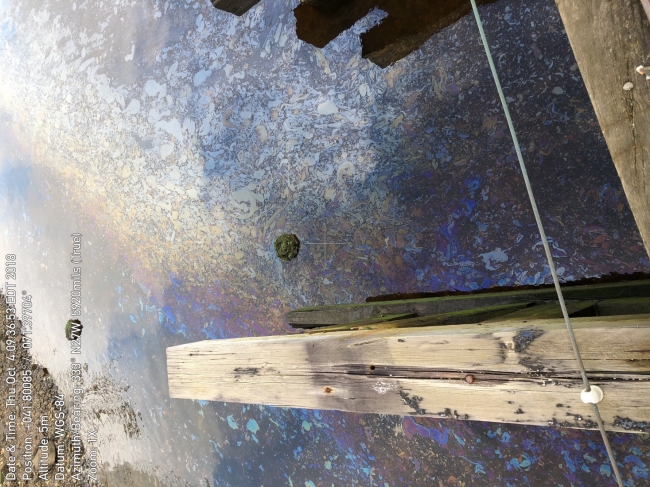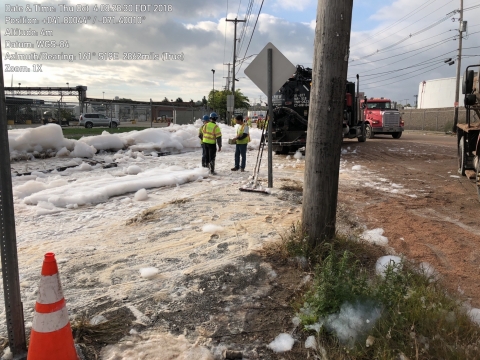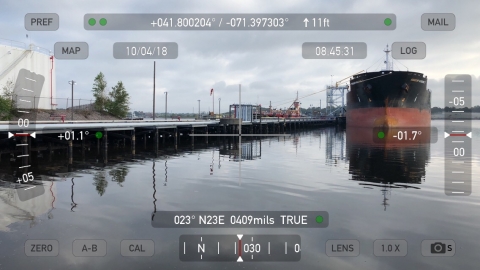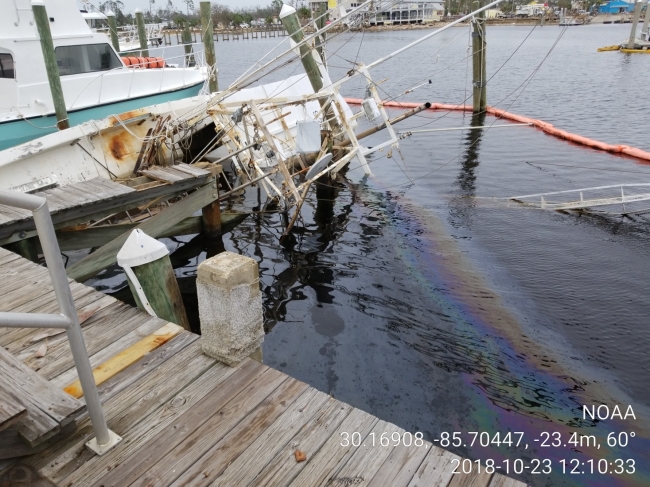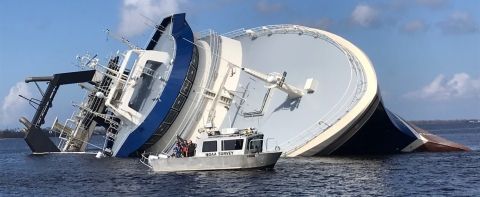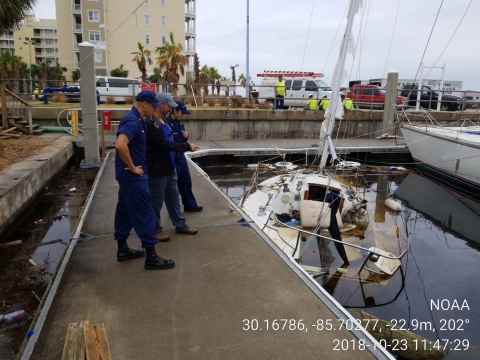Every month our Emergency Response Division provides scientific expertise and services to the U.S. Coast Guard on everything from running oil spill trajectories to model where the spill may spread, to possible effects on wildlife and fisheries, and estimates on how long the oil may stay in the environment.
This month OR&R responded to 12 incidents, including oil discharges, sunken vessels, and hazardous material releases.
Here are some of October’s notable incidents:
Tank Truck Turns Over, Spills Nearly 12,000 Gallons into Providence River
A tank truck carrying 12,000 gallons of gasoline turned over and ruptured on an overpass, spilling almost the entire load, on Oct. 3, 2018 in Providence, Rhode Island. The gasoline ran down the incline and into stormwater catch basins leading to the Providence River.
The Providence Fire Department deployed an as yet unknown amount of firefighting foam to protect workers from the vapors. Some amount of the foam made it to the river, and the state and the Coast Guard were notified. The Coast Guard contacted NOAA to begin discussing possible response tactics and environmental impacts.
Hurricane Michael Pollution Assessment and Response Efforts
Hurricane Michael made landfall on Oct. 10 near Mexico Beach, Florida as a Category 4 storm with winds of 155 miles an hour — causing significant damage with several reports of displaced, overturned, or capsized vessels.
OR&R began reviewing early imagery to start identifying potential pollution sources, such as displaced vessels and containers. At this time, about 80 percent of the targeted vessels have been assessed, with nearly 200 vessels being identified as requiring action by the pollution task force. As assessment continues, shallow water barges and a 300-ton crane are in route to begin vessel removal and pollution mitigation operations. NOAA and Florida State agency representatives will be on sight to oversee operations to ensure no further environmental harm is done.
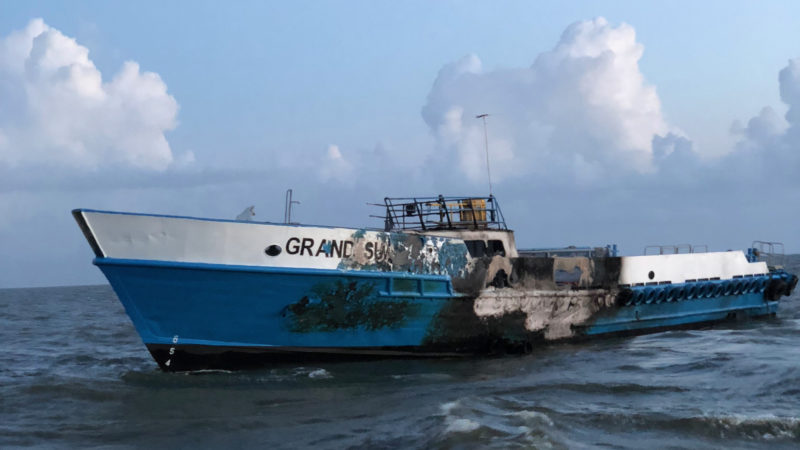
Passenger Vessel Catches Fire in Breton Sound, Louisiana
On Oct. 8, the U.S. Coast Guard contacted NOAA regarding a passenger vessel that caught fire in Breton Sound, Louisiana. Four crew members were rescued and the vessel was left in the water until a survey could be done to deem the vessel towable. The vessel was reportedly carrying 3,500 gallons of diesel fuel and 40 gallons of lube oil at the time of the fire.
Although no pollution was reported discharging from the vessel, the U.S. Coast Guard requested that NOAA calculate fate and trajectory for the petroleum products on board. Salvage and oil removal operations were delayed due to forecasted inclement weather from Hurricane Michael. That fate and trajectory report stated that any discharged product would be driven to the west that day, and to the south and southeast the following day.
Vessel Takes on Water, Runs Aground Near Cameron, Louisiana
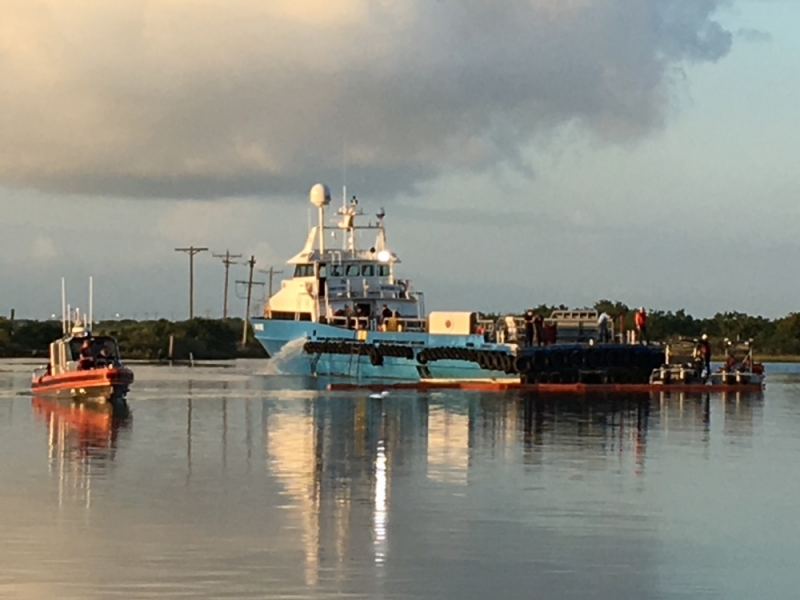
On Oct. 15, the U.S. Coast Guard contacted NOAA regarding the discharge of nearly 1,000 gallons of diesel fuel. The vessel had been headed for the West Cameron 71 Oil Field when it struck the Cameron Jetty. It was beached on the north end of Monkey Island.
The Coast Guard requested a trajectory analysis and potential resources at risk. An estimated 1,000 gallons of diesel fuel spilled into the marine environment due to damage to one of the vessel’s fuel tanks. The Coast Guard and the Louisiana Department of Environmental Quality completed shore and waterside pollution assessments while overseeing the cleanup efforts. Due to stormy weather, including a recent steady rainfall, the spill had largely dissipated minimizing the ability for oil recovery.
The remaining fuel was transferred to undamaged vessel tanks and containers, preventing the release of an additional 2,000 gallons of fuel. The cause of the incident is under investigation.
Fishing Vessel Takes on Water, Sinks off Ewa Beach, Hawaii

On Oct. 30, the U.S. Coast Guard in Honolulu contacted NOAA to request oil fate and trajectory reports for a sunken vessel off Ewa Beach near Oahu, Hawaii. Nine people had been rescued off the 41-foot fiberglass fishing vessel,The Wild Bunch, two days earlier. The vessel had taken on water, sank to the bow, and then drifted. The Coast Guard collected floating debris and life jacks, but the boat itself could not be dewatered.
After an eight-hour search by helicopter, the vessel could not be relocated. On Oct. 31, a report of debris was positively identified to be from the fishing vessel. A shoreline search was conducted on Nov. 1, but did not result in any further debris sightings. The vessel was reported to hold 250 gallons of diesel fuel and 32 quarts of oil, though no sheens had been observed.
Here is the complete list of last month’s incidents, click on the links to find out more:
- F/V San Diego Grounding
- Breton Sound Tank Battery 53
- Rollover Accident, Providence, RI
- Hilcorp East Bay Baptiste facility Discharge
- Plains Marketing-St James Facility; MM 157
- Hurricane Michael
- P/V Grand Sun
- M/V Candy Store
- Mystery Sheen, South Pass, LA
- Tiger Pass Unknown Liquid Release
- Newtok Tank Farm
- Sunken F/V Wild Bunch

